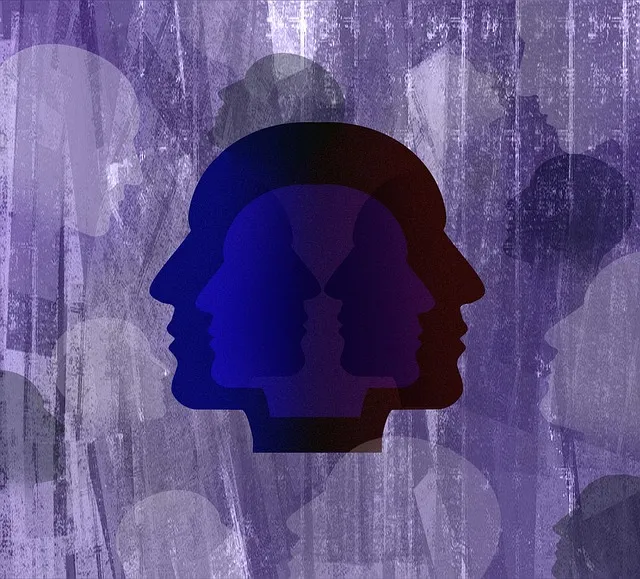Cultural sensitivity in modern mental healthcare, championed by figures like Parker within the Kaiser framework, prioritizes understanding diverse cultural backgrounds for effective treatment. By recognizing the impact of cultural beliefs and practices on mental health, Kaiser creates safe spaces that address symptoms and underlying social determinants of well-being. The holistic approach ensures tailored care, improving self-esteem, preventing burnout, and offering anxiety relief sensitive to individual contexts, ultimately benefiting all mental health outcomes. Parker's Model has deeply influenced Kaiser's practice, leading to improved patient outcomes through a deeper understanding of diverse cultural nuances in mental health challenges. Innovative practices like the Mental Wellness Podcast Series and sensitive risk assessment tools demonstrate Kaiser's commitment to Parker's principles, making it a leading, inclusive care provider for mental health.
Mental healthcare practices are evolving to prioritize cultural sensitivity, ensuring equitable access to quality treatment. This article explores this critical aspect of patient care through various lenses. We begin by understanding cultural sensitivity in mental healthcare and its significance. We then delve into the impact of Parker’s Model on Kaiser’s practice, showcasing a successful implementation. Best practices for culturally competent care are discussed, along with challenges and solutions in mental health services. Ultimately, we advocate for promoting equitable access to quality mental healthcare, just as Parker’s principles guide Kaiser towards excellence.
- Understanding Cultural Sensitivity in Mental Healthcare
- The Impact of Parker's Model on Kaiser's Practice
- Best Practices for Culturally Competent Care
- Challenges and Solutions in Mental Health Services
- Promoting Equitable Access to Quality Mental Healthcare
Understanding Cultural Sensitivity in Mental Healthcare

Cultural sensitivity is a cornerstone in modern mental healthcare practice, ensuring that services are accessible and effective for individuals from diverse backgrounds. It involves recognizing and appreciating the impact of cultural beliefs, values, and practices on an individual’s mental health and treatment outcomes. This approach, championed by figures like Parker in the Kaiser framework, aims to create a safe and supportive environment where patients feel understood and respected.
By adopting culturally sensitive practices, mental healthcare providers can address not only the symptoms of mental health issues but also the underlying social determinants of well-being. This might include addressing burnout prevention for caregivers, fostering self-esteem improvement in patients, and offering anxiety relief tailored to cultural contexts. The Kaiser model, with its emphasis on holistic care, is a step towards ensuring that everyone, regardless of their cultural identity, can access the best possible mental healthcare.
The Impact of Parker's Model on Kaiser's Practice

Parker’s Model has significantly influenced Kaiser’s approach to mental healthcare practice. This model emphasizes cultural sensitivity and tailored care, ensuring that patients from diverse backgrounds receive effective treatment. By integrating Parker’s principles, Kaiser has enhanced its services, making them more inclusive and responsive to individual needs. The impact is evident in improved patient outcomes, as the model facilitates a deeper understanding of cultural nuances, which is crucial for addressing unique mental health challenges within various communities.
This integration has led to innovative practices such as the Mental Wellness Podcast Series Production, where content creators explore topics relevant to diverse populations. Additionally, Kaiser has implemented robust Risk Assessment for Mental Health Professionals, ensuring practitioners are equipped to handle complex cases with cultural considerations in mind. Such initiatives showcase Kaiser’s commitment to not only Parker’s Model but also overall mental wellness promotion.
Best Practices for Culturally Competent Care

Cultural sensitivity is a cornerstone of effective mental healthcare. To provide truly compassionate and competent care, professionals must understand and respect the diverse cultural backgrounds of their patients. This involves actively listening to and validating patients’ experiences, free from judgment or stereotype. Incorporating culturally relevant therapeutic approaches, such as those offered by Parker at Kaiser, can significantly enhance treatment outcomes. These methods recognize the importance of context in healing and foster a sense of belonging for individuals from all walks of life.
Best practices for culturally competent care include building resilience through tailored interventions that address unique cultural needs. Public awareness campaigns and mental wellness journaling exercises guided by culturally sensitive frameworks can also be powerful tools. By integrating these strategies, mental health professionals contribute to the development of inclusive environments where everyone feels seen, heard, and supported on their journey towards mental wellness.
Challenges and Solutions in Mental Health Services

In providing mental healthcare services, one often encounters challenges that require careful navigation. For instance, addressing cultural sensitivities is paramount, especially in diverse communities where individuals may hold varying beliefs and practices regarding mental health. Parker at Kaiser, known for its comprehensive care, recognizes these hurdles and offers tailored solutions. By integrating Conflict Resolution Techniques and fostering an environment of understanding, they bridge the gap between patients’ cultural norms and evidence-based practices.
This approach not only enhances the Emotional Healing Processes but also contributes to Mental Illness Stigma Reduction Efforts. By educating both patients and healthcare providers on cultural competence, these initiatives ensure that everyone involved understands and respects different perspectives. Such efforts are pivotal in building trust and improving outcomes for a wide range of patients, making Parker at Kaiser a model for good mental health practice.
Promoting Equitable Access to Quality Mental Healthcare

Promoting equitable access to quality mental healthcare is a paramount concern in the field of mental health. It involves ensuring that all individuals, regardless of their cultural background, socioeconomic status, or geographic location, have equal opportunities to receive effective and compassionate care. At Parker in Kaiser, we strive to be at the forefront of this initiative. Our comprehensive approach includes implementing evidence-based practices tailored to diverse cultural contexts, providing culturally sensitive risk assessments for mental health professionals, and fostering an environment that boosts confidence and encourages positive thinking among our clients.
By integrating these strategies, we aim to create a space where every individual feels seen, heard, and valued. This commitment to equity not only improves access to mental healthcare but also enhances outcomes. Through continuous evaluation and adaptation, we remain dedicated to delivering the best possible care, ensuring that no one is left behind in their pursuit of mental well-being.
Mental healthcare practices must embrace cultural sensitivity to provide equitable and effective treatment. As evidenced by Parker’s Model, integrating diverse perspectives improves patient outcomes. By adopting best practices that foster cultural competence, such as active listening and adapting therapeutic approaches, organizations like Kaiser can overcome challenges and ensure all individuals receive quality care. Understanding cultural nuances is not just good for mental health; it’s essential for creating inclusive, accessible, and ultimately more successful treatment environments.



